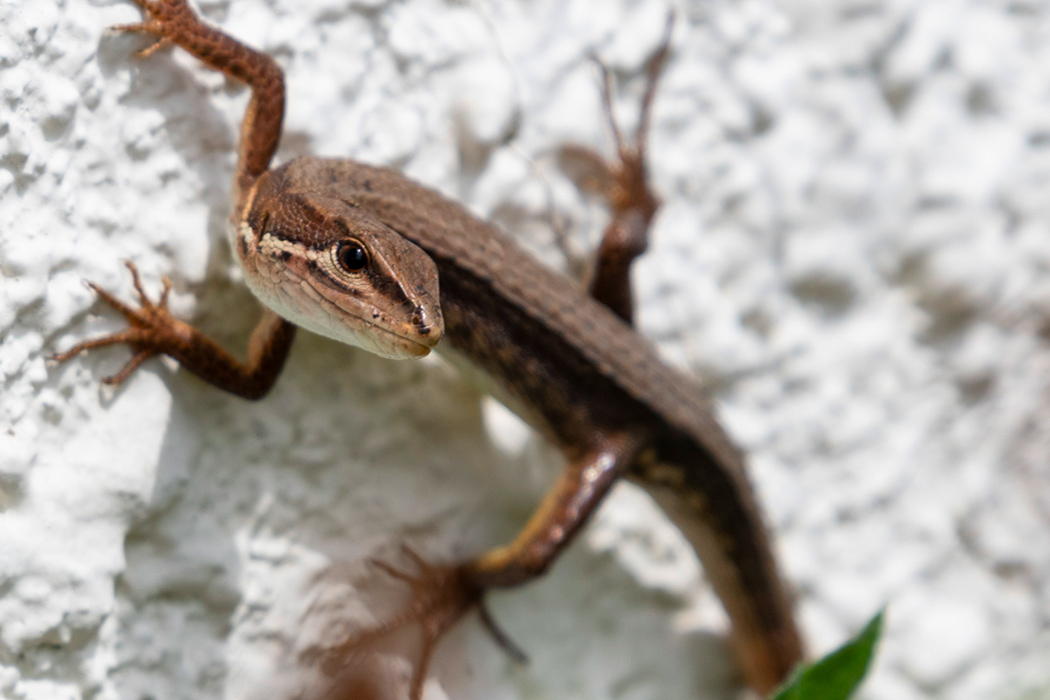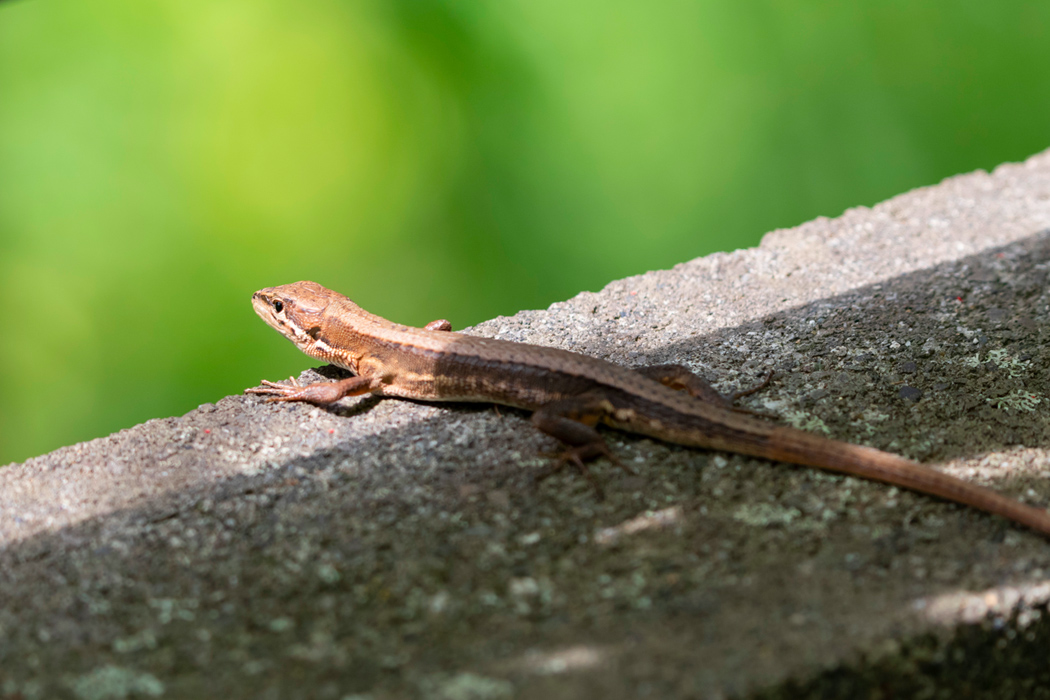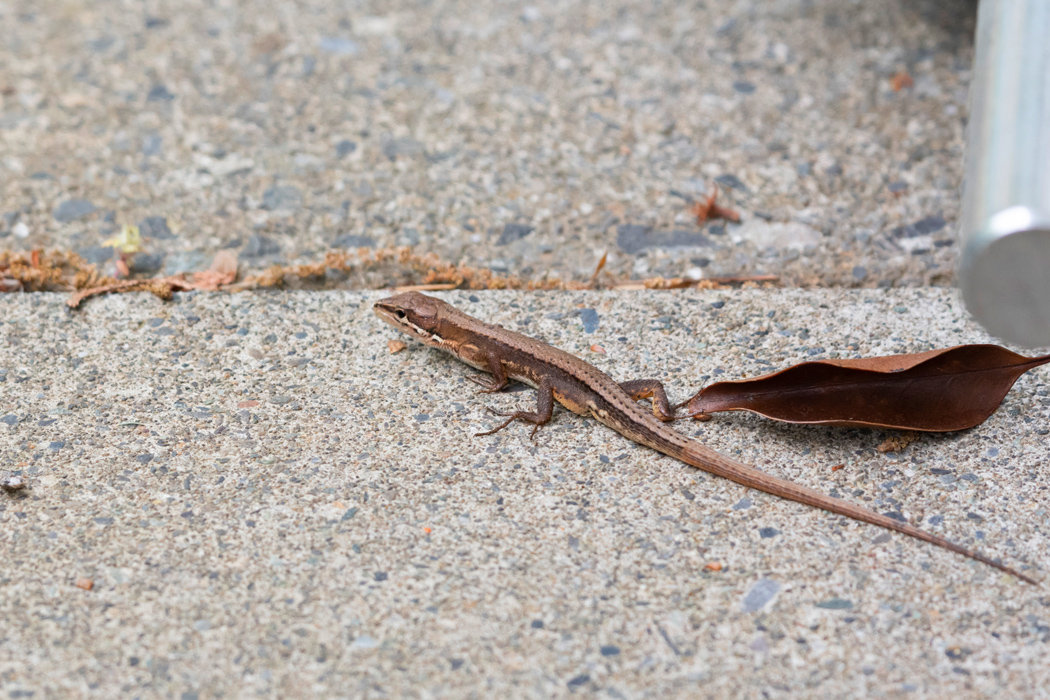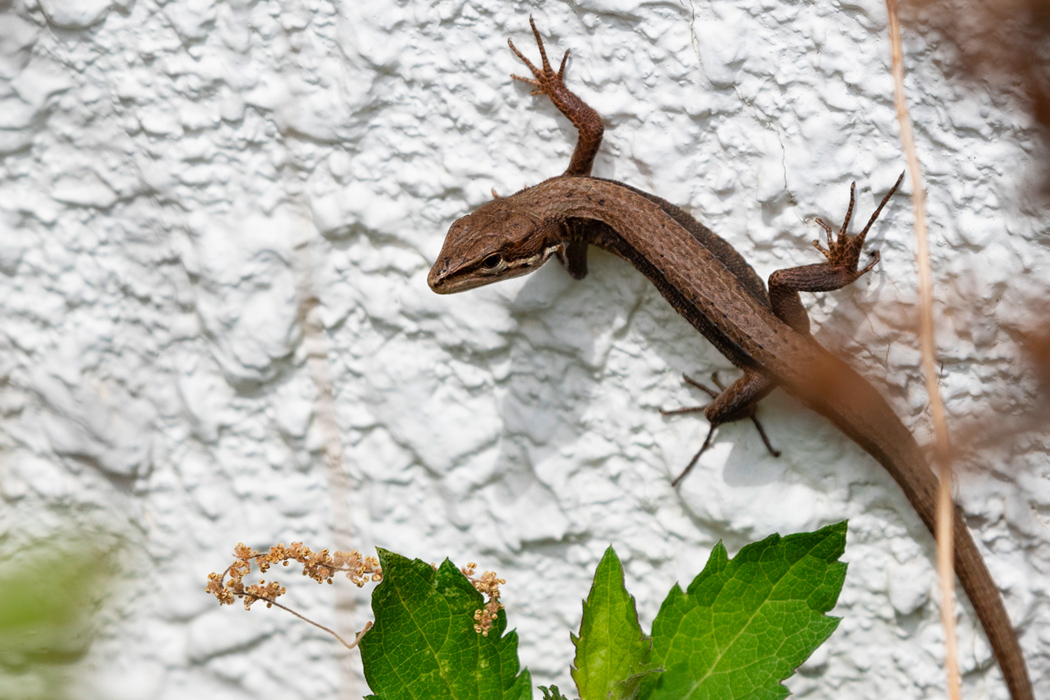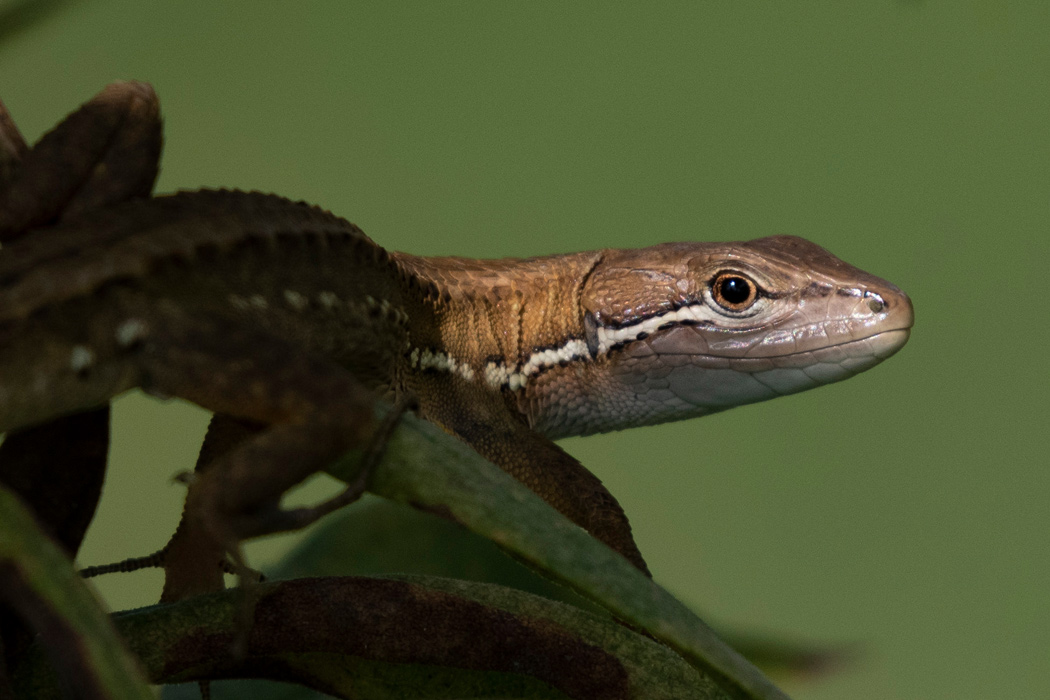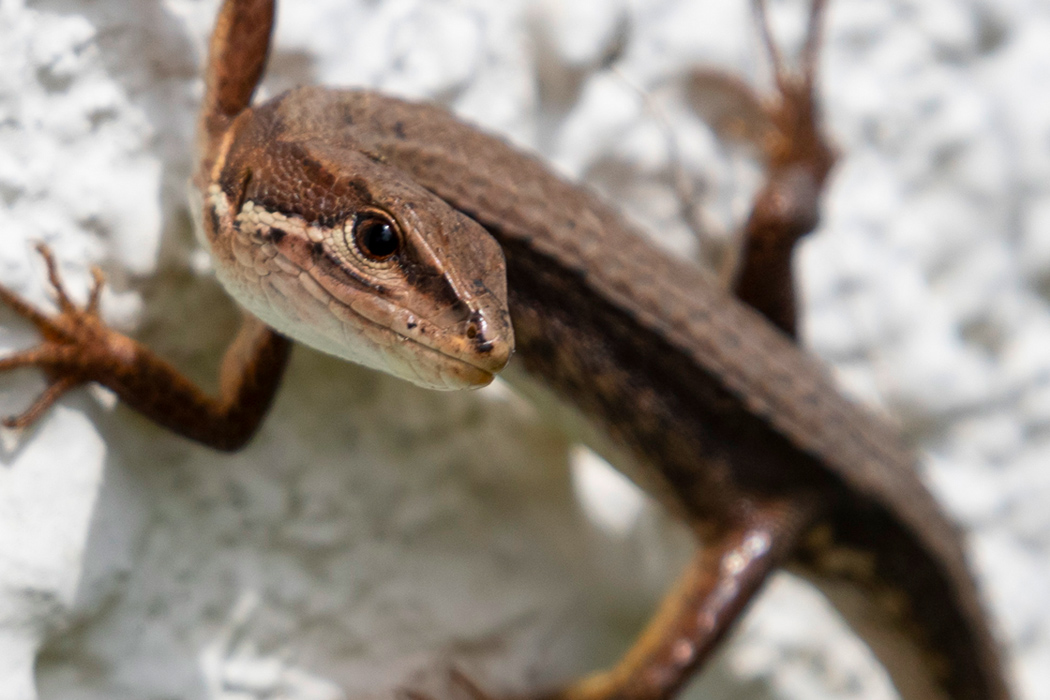
Japanese grass lizard
The most familiar reptile with a long tail.
| Scientific name | Takydromus tachydromoides |
| English name | Japanese grass lizard |
| Japanese name | 日本金蛇 |
| Classification | Reptilia |
| Classification details | Squamata Lacertidae |
| Full length | 18-25cm |
| Distribution | All over Japan |
Characteristics
A Japanese lizard whose tail is more than half the length of its body. It has a dull brown color, with a dark brown band running from the eyes to the tail, and a skin-colored line underneath. The tip of the mouth is triangular, with nostrils visible at the tip. It has slender fingers, especially the ring finger. This lizard is often seen in gardens and parks, and can be seen going in and out under bushes, flower pots, and cracks in concrete.
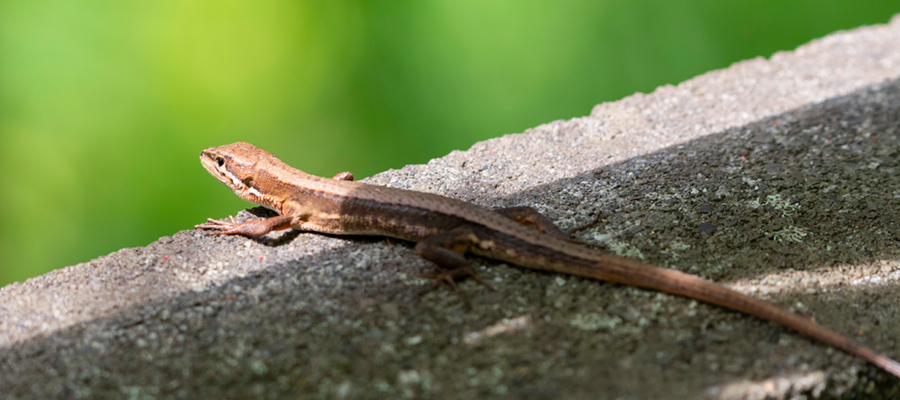
Ecology
Widely inhabits lowlands, grasslands, parks and gardens. It is active during the day and preys on insects, spiders, and woodlice. It can also climb block walls and trees. In order to regulate its body temperature, it sometimes spends a lot of time in the sun during the day.
When it notices people, it quickly retreats into bushes or shade. When it senses danger, it may cut off its tail and take it. A severed tail regenerates, but the bones do not grow back.
It reproduces by laying eggs in the grass from spring to summer. After autumn, it burrows into the ground to overwinter, and in about a year it changes from a juvenile to an adult.
Habitat
On a white wall at home
In the garden of my home in Hachioji City, I found a Japanese kanaebi basking in the sunlight. If you open the front door and hear a thud running into the bushes, it's usually a Japanese lizard or Japanese lizard. On my way to a nearby elementary school, there was a point where a Japanese kanase was hiding in a sunny place, and I remember catching it on my way home from school when I was a child. It escapes quickly, so it is surprisingly difficult to catch with bare hands.
In the shrubs along the Asakawa River
When I was walking along the Asakawa River, I saw a small animal moving on top of a shrub. It moved well through the branches and leaves.
Video
The vide of the Japanese grass lizard.
Walked.
Pictures
Introducing a picture of Japanese grass lizard.

Picture book
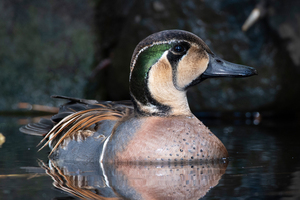
Balkal Teal
A face with a black, green, and brown Tomoe-shaped pattern......ead more.
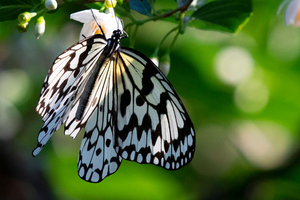
Tree nymph butterfly
Japan's largest tropical butterfly......ead more.
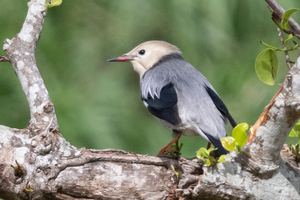
Red-billed Starling
A starling with a gray-brown head.......ead more.

Ashy minivet
The Japanese name comes from the squeaking sound of Hiriri.......ead more.
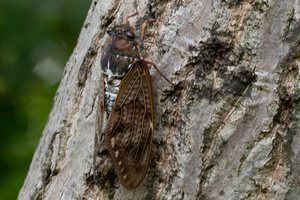
Large Brown Cicada
Makes a "zee" sound.......ead more.
